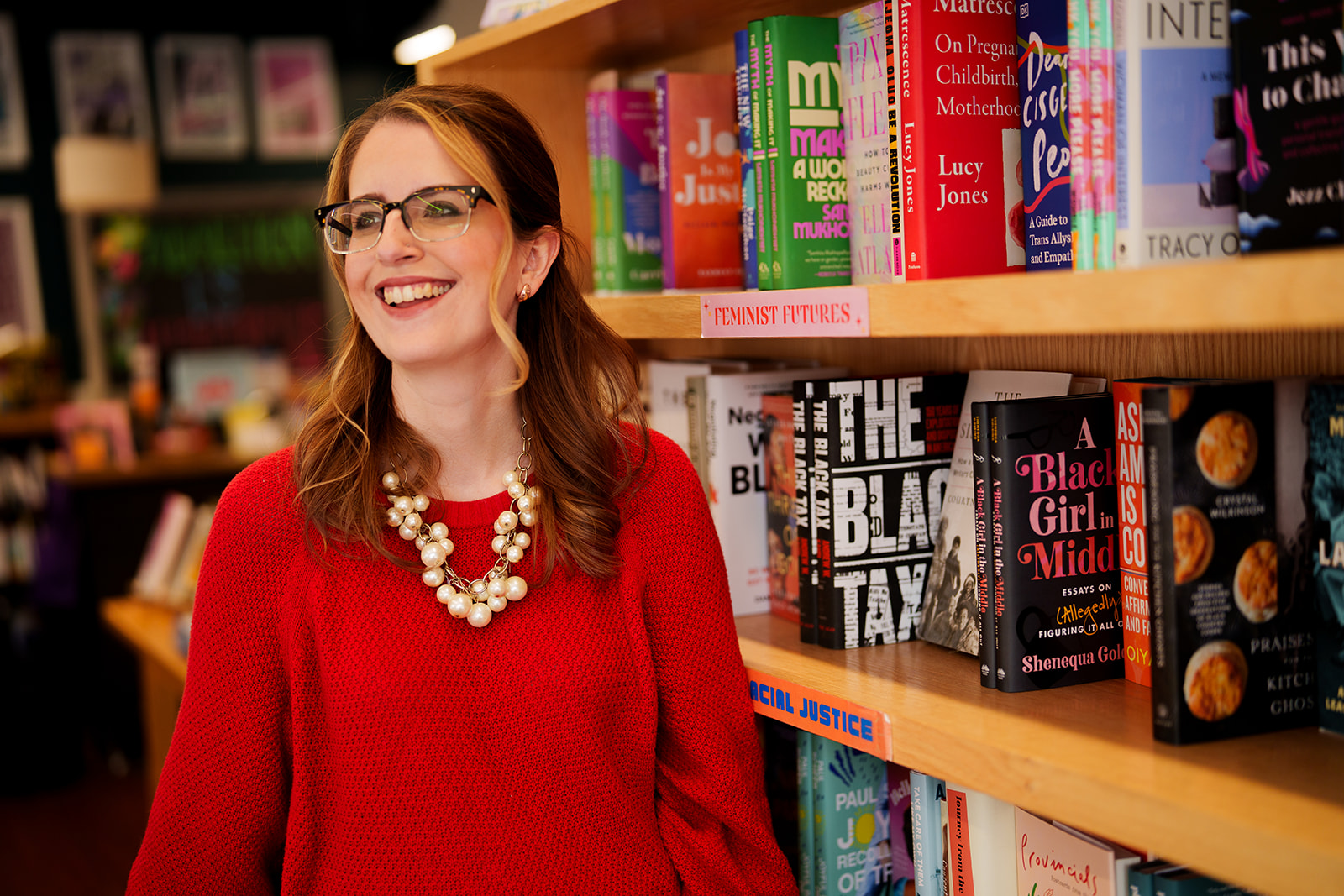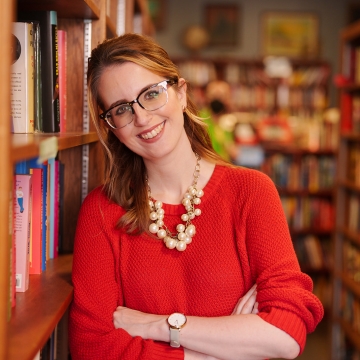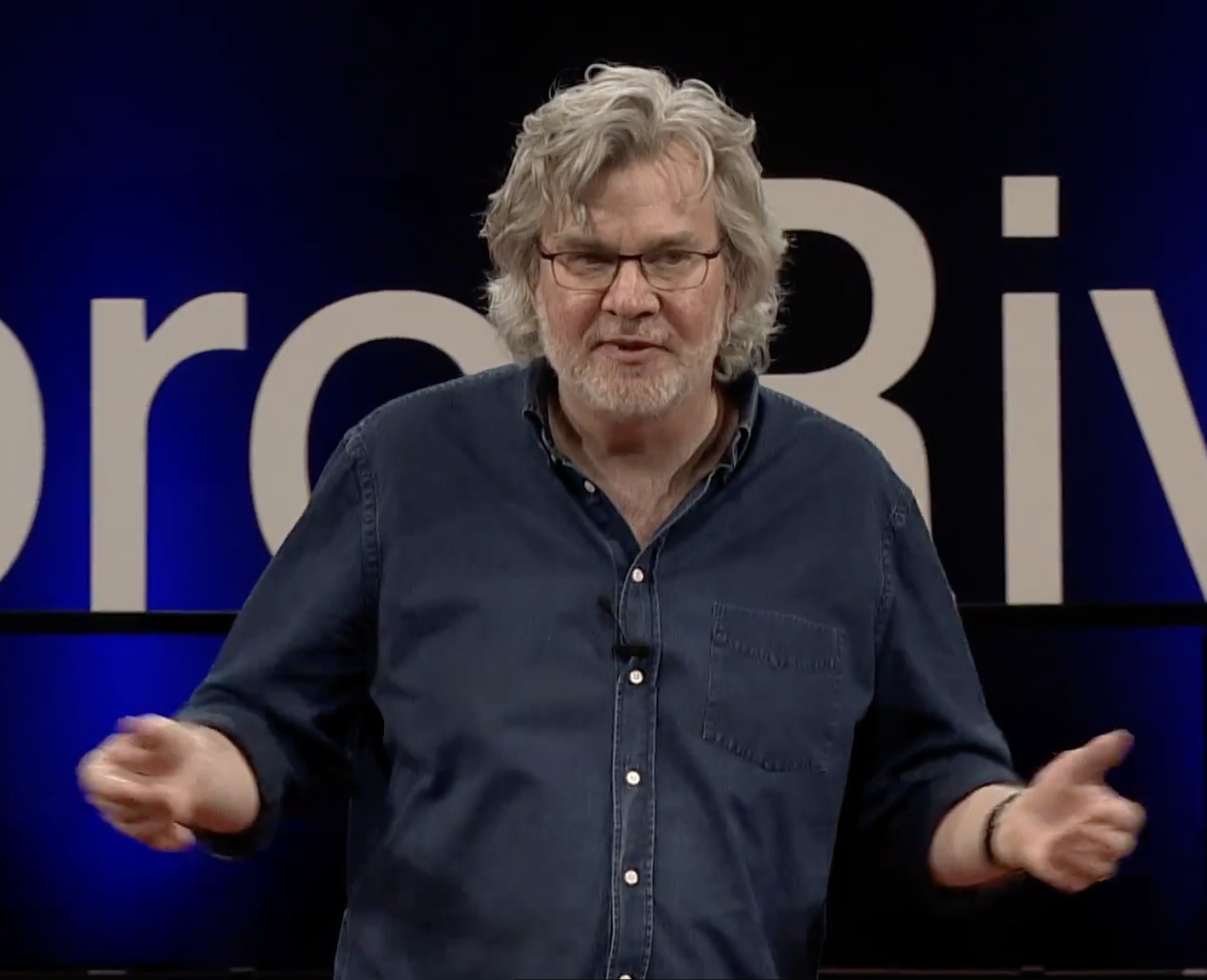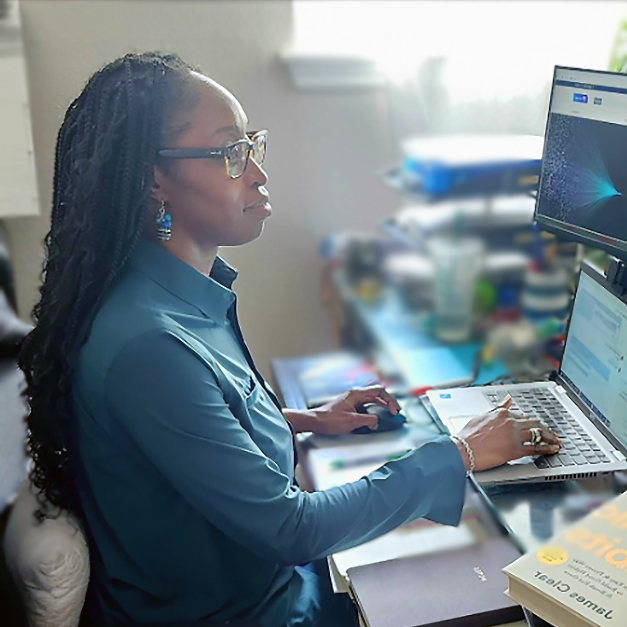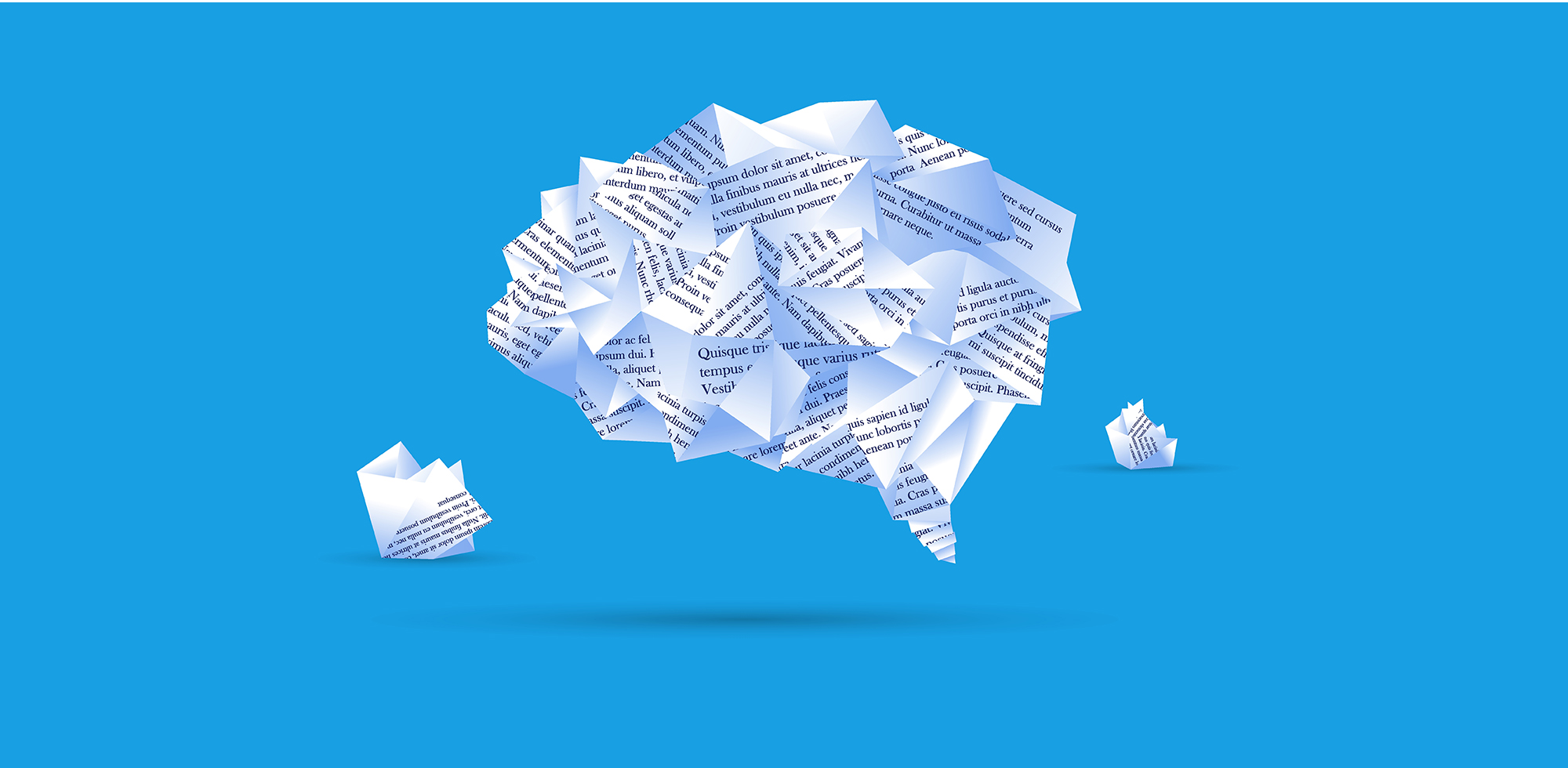A medical librarian brings unique expertise to the Medical Writing and Editing certificate program—as both instructor and student.
Medical writers face a constant challenge: finding specific and authoritative research in vast databases of clinical studies. That’s where Rachel Wedeward, a medical librarian with nearly a decade of experience, steps in. As an instructor for the Medical Writing and Editing certificate at UChicago Professional, she teaches students the art and science of medical database research—a skill she says is often overlooked but essential.
In her role at the American Academy of Pediatric Dentistry (AAPD), Wedeward manages complex research projects and develops manuscripts for journal publication. This expertise in medical database research led her to join the online Medical Writing and Editing certificate program six years ago as an instructor for MEDLINE and Beyond, an elective course that teaches students how to effectively search medical databases.
“Most people assume keywords and Google are enough,” Wedeward explains. “But to get the best evidence, you need to be much more precise and targeted. Articles are indexed by specific subject headings, and you need to know how to filter for study types, dates, and populations.”
“I focus on building portfolio pieces,” she adds. “Students can choose optional assignments in areas like patient education or blog writing. The final project has them develop a comprehensive search strategy they can show future employers. I don’t want them to just learn something—I want them to be able to demonstrate it.”
While Wedeward’s strong library science background made her the perfect fit to teach database research, she found herself wanting to strengthen other aspects of her professional tool kit. “There was a lot about manuscript development I had to learn on the go,” she says. Recognizing the broader demands of medical communication, Wedeward decided to become a student in the program herself, where she could expand her expertise in medical writing and editing.
She’s already seeing direct applications to her work with manuscripts. “I’m learning about the different levels of copyediting and even just looking at problematic ways of how to display data,” she says. “If you’re trying to do comparisons, a graph tends to be easier. If you’re doing descriptions, a table tends to be much better.”
As both instructor and student, Wedeward has gained special insight into the challenges of transitioning into medical writing. Her own experience learning new skills has deepened her appreciation for what her students face.
“Many of our students are clinicians looking for a career change,” she notes. “They need both technical skills and professional connections. The program’s synchronous sessions and social hours create genuine networking opportunities, which is rare in online education.”
Wedeward particularly values these connections, having seen how they benefit both her teaching and her students. “Medical librarians can be incredibly valuable to medical writers, but many writers don’t understand how to use our expertise,” she says. “Teaching in this program helps bridge that gap, while the connections I’ve made as a student help me better understand writers’ needs.”
This symbiotic relationship between teaching and learning continues to shape Wedeward’s approach. “Whether I’m instructing or studying,” she says, “my goal is always the same—to make complex research skills accessible and immediately useful.”

